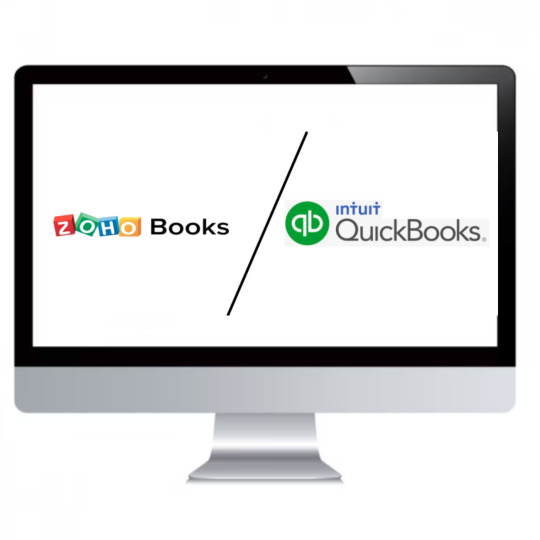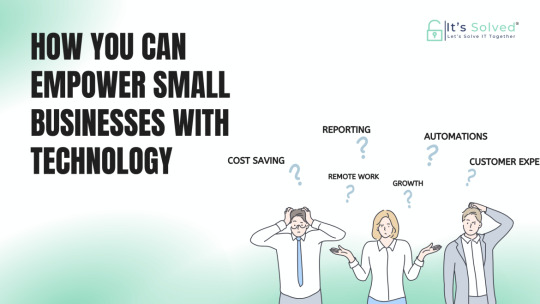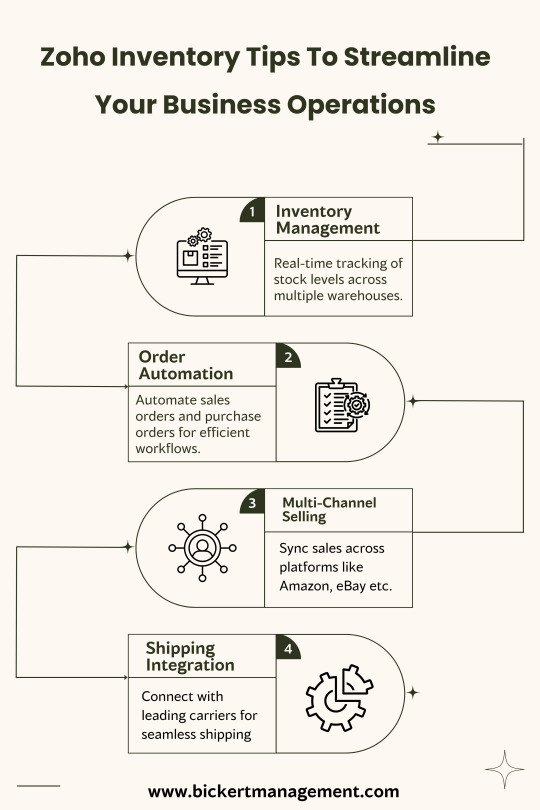#Zoho one integrations
Text
Discover how Zoho CRM Implementation Services streamline your business operations. Overcome challenges in customization with expert assistance. Optimize Zoho CRM for your unique needs. Benefit from smooth transition, data accuracy, and comprehensive training. Maximize ROI and operational efficiency. Make the most of Zoho CRM with tailored implementation.
0 notes
Text
Zoho for Email Marketing Campaigns!Learn how you can elevate your email marketing game with Zoho. Learn the ropes of automated campaigns, personalised welcome emails and showcasing client success stories effortlessly.
Dive into IT Solutions Solved's expert guide and transform your marketing strategy today. Create, send and track with precision for sky-high engagement and conversions. Let's make your brand stand out with Zoho and IT Solutions SolvedWe're here to help you out with all things Zoho. Whether you need advice, support, or even just some tips, we've got your back.
We know Zoho and other useful tech inside and out and our CRM consultants will make it work for you. From setting it up to solving problems, we've got the skills to make it happen. Plus, we're based right here in Sydney, so you know we're local and easy to reach.And guess what? We're not just any old Zoho consultants – we're official partners! That means we know our stuff and we've got the official seal of approval from Zoho themselves.
#zoho partner australia#zoho expert in sydney#zoho consultant in australia#zoho crm consultant in australia#zoho consultant australia#Zoho consulting services#Zoho free CRM software#Zoho CRM free edition#Zoho CRM for free#Zoho support Australia#Zoho in Australia#zoho partner#zoho implementation partners#zoho expert#zoho partners#zoho crm specialist#zoho implementation partner#zoho consulting partner#future of crm software#zoho authorised partner#free crm software australia#how to find a zoho integration partner#zoho crm free#find a zoho partner#zoho one australia#zoho crm expert#zoho one suite#future of crm technology#crm trends#zoho crm
0 notes
Text
Organizations that use SAP Business One as their ERP system and Zoho CRM to manage contacts and leads must ensure that data is always consistent in both applications, even when changes occur in real time on any one side.
With APPSeCONNECT’s Zoho CRM and SAP Business One integration, you can easily automate data synchronization for deals, quotes, and sales orders between the two applications.
In this article, we will discuss the advantages of this integration, and how businesses can benefit by syncing their Zoho CRM with their SAP Business One ERP system.
1 note
·
View note
Text

A Single Lead Management Software For Your Business
ZOHO Marketing Automation is an all-in-one marketing automation hub that helps you to attract your website visitors, and manage marketing activities across multiple channels by sending mailers, and auto-responders. You’re able to capture and filter prospective clients as well as generate more qualified leads, convert them to sales, and maintain customer retention. Visit: https://prismcrmsolutions.com/zoho-marketing-automation/
#business management software#business platform app#zoho one suite#CRM Implementation services Dubai#CRM Software Consultation#crm implementation services#crm implementation#crm consulting services#CRM Software consultation#CRM ZOHO#zoho crm implementation partners#Zoho CRM Software#lead management software#zoho whatsapp integration#zoho crm professional#pipeline management#sales pipeline management#best crm for lead management#crm software service#Zoho CRM Plus Software#Application CRM Relationship Management#zoho crm plus Application#crm relationship management Software#client relationship management software#crm customer relationship management#marketing relationship management#zoho crm plus products#Zoho campaigns email marketing#zoho campaigns
0 notes
Text
The Ultimate Comparison of Zoho Books and QuickBooks for Small Business Owners
Introduction
Running a small business is no easy feat. From managing finances to handling client relationships, the responsibilities can be overwhelming. However, with the right tools in hand, you can streamline your operations and simplify your workload significantly. Two of the most popular accounting software options for small businesses are Zoho Books and QuickBooks. But which one should you choose?

In this ultimate comparison guide of Zoho Books vs QuickBooks, we'll take a deep dive into both platforms' pros and cons so that you can make an informed decision on what's best for your business needs!
What is Zoho Books?
Zoho Books is an easy-to-use cloud-based accounting software designed specifically for small business owners. It offers a range of features to help manage finances, including invoicing, expense tracking, inventory management and time-tracking.
One of the best things about Zoho Books is its user-friendly interface. Even if you have no prior experience with accounting software, you can easily navigate through the platform and get started in no time.
Another noteworthy feature of Zoho Books is its automation capabilities. You can set up recurring invoices or automatic payment reminders to save yourself time on manual tasks. Additionally, Zoho Books integrates seamlessly with other apps within the Zoho suite and third-party applications like Stripe and PayPal.
Zoho Books provides a cost-effective solution for small businesses looking to streamline their financial operations without sacrificing functionality or ease-of-use.
What is QuickBooks?
QuickBooks is an accounting software that targets small and medium-sized businesses. It was developed by Intuit, a well-known financial software company based in Mountain View, California. QuickBooks offers a range of features such as bookkeeping, invoicing, payroll management, and inventory tracking.
One of the key features of QuickBooks is its user-friendly interface which makes it easy for non-accountants to use. The software also integrates with various third-party applications like PayPal and Shopify to provide users with more functionality.
Moreover, QuickBooks comes in both desktop and online versions meaning you can choose the one that suits your business needs. Desktop version requires installation on your computer while the online version allows you to access the app from anywhere provided you have internet connection.
QuickBooks is ideal for small business owners who need basic accounting tools without spending too much time learning complex financial jargon.
The Pros and Cons of Zoho Books
Zoho Books is a cloud-based accounting software designed for small businesses. It offers many features that can help business owners manage their finances effectively.
One of the pros of Zoho Books is its affordability. The pricing plans are reasonable and offer great value for money, especially when compared to other accounting software on the market.
Another advantage of Zoho Books is its user-friendly interface. Even if you're not an accounting expert, you can easily navigate through the software with ease.
Furthermore, Zoho Books also allows users to customize invoices and reports which can be helpful in branding your business identity as well as presenting financial data more professionally.
On the downside, some users have reported glitches with certain features like inventory management and bank reconciliation. Also, customer support may take longer than usual to respond sometimes leaving users waiting for hours or days before getting assistance.
Zoho books offer a wide range of benefits at an affordable price point but it’s important to consider the potential drawbacks too before making a final decision about whether this solution will meet your needs and expectations.
The Pros and Cons of QuickBooks
QuickBooks is a popular accounting software that has been around for decades. It offers a variety of features to help small business owners manage their finances effectively. Here are some pros and cons of using QuickBooks.
Pros:
One of the biggest advantages of QuickBooks is its user-friendly interface, which makes it easy to navigate and use even for non-accountants. The software also offers a wide range of features such as invoicing, expense tracking, inventory management, and payroll processing.
Another benefit of using QuickBooks is its integration with other applications like Microsoft Excel, TurboTax, and Salesforce. This allows you to import data from other sources into QuickBooks seamlessly.
Moreover, QuickBooks provides excellent customer support through phone or chat services and has an extensive knowledge base that can answer most common questions.
Cons:
One major drawback of using QuickBooks is its high cost compared to other accounting solutions in the market. Additionally, some users have reported glitches or difficulties when attempting to run certain functions within the software.
Furthermore, while it does offer many features that are helpful for small businesses operations; however this may be overwhelming for some users who only require basic functionalities but still need to pay the full price for all options provided by the software.
Which One is Right for You?
Choosing between Zoho Books and QuickBooks can be a tough decision, as both offer unique features to small business owners. To determine which one is right for you, there are a few factors to consider.
Firstly, the size of your business plays an important role in choosing between the two platforms. If you're running a smaller operation with fewer employees and transactions, then Zoho Books might be the way to go due to its affordability and ease of use. However, if your business has more complex accounting needs or multiple users that need access to financial information, QuickBooks may be better suited for you.
Another factor to consider is what type of industry your business operates in. QuickBooks offers more specialized versions geared towards specific industries such as construction or nonprofit organizations. On the other hand, Zoho Books caters more towards service-based businesses like consulting firms or marketing agencies.
It's worth considering whether integration with other software programs is important for your business operations. QuickBooks has been around longer and therefore may have stronger integrations with other common software systems like Microsoft Office Suite or Salesforce.
Ultimately, choosing between Zoho Books vs QuickBooks comes down to individual needs and preferences based on these various factors mentioned above - ensuring that you pick an accounting platform tailored specifically for your unique requirements will make all the difference in managing finances effectively!
Conclusion
After comparing Zoho Books vs QuickBooks, it's clear that both accounting software packages have their strengths and weaknesses. Ultimately, the decision on which one to use will depend on your specific business needs.
If you're a small business owner who is looking for an affordable solution with excellent invoicing capabilities, then Zoho Books may be the right choice for you. However, if you require more advanced accounting features or a system that integrates with other applications seamlessly, then QuickBooks may be the better option.
Regardless of which platform you choose, make sure to do your research thoroughly before committing to any particular accounting software. By taking the time to carefully evaluate each package's pros and cons in light of your company's unique requirements, you'll ensure that you end up with an ideal solution that helps streamline your operations while providing accurate financial data at all times.
3 notes
·
View notes
Text
Zoho Projects Pros and Cons: Unveiling the Benefits and Limitations
🔎 Zoho Projects Pros and Cons: Unveiling the Benefits and Limitations 🔎
Hey everyone! 👋 Today, I want to discuss Zoho Projects and shed some light on its pros and cons. If you're looking for a project management tool and considering Zoho Projects, this post might help you make an informed decision. Let's dive in! 🚀
👍 Pros: 1️⃣ Comprehensive Features: Zoho Projects offers a wide range of features that empower teams to manage projects effectively. From task management and time tracking to collaboration tools and resource allocation, it covers all the essentials. 2️⃣ User-Friendly Interface: One of the key strengths of Zoho Projects is its intuitive and user-friendly interface. Navigating through the platform and accessing various features is a breeze, even for newcomers. 3️⃣ Customization Options: Zoho Projects allows you to tailor the tool to your specific needs. You can create custom workflows, add custom fields, and personalize the interface to align with your project requirements. 4️⃣ Collaboration Made Easy: The platform promotes seamless collaboration among team members. You can assign tasks, share files, and communicate within the platform, fostering better teamwork and communication. 5️⃣ Integration Capabilities: Zoho Projects integrates with various popular tools such as G Suite, Slack, and Dropbox. This enables smooth data transfer and synchronization, enhancing your overall productivity.
👎 Cons: 1️⃣ Steep Learning Curve: While Zoho Projects' interface is user-friendly, some users might find the learning curve a bit steep, especially when exploring advanced features. Adequate training and support might be necessary for the team to fully utilize the tool. 2️⃣ Limited Automation: Compared to some other project management tools, Zoho Projects has relatively limited automation capabilities. Although it provides basic automation features, more complex workflows might require manual intervention. 3️⃣ Mobile App Limitations: While Zoho Projects does offer a mobile app, it may not be as feature-rich or as polished as the web version. Some users have reported occasional glitches or limitations in functionality when using the app.
📢 In conclusion, Zoho Projects has its fair share of pros and cons. Its comprehensive features, user-friendly interface, and customization options make it a viable choice for many teams. However, it's important to consider the learning curve, limited automation, and potential mobile app limitations before making your decision.
🤔 Have you used Zoho Projects before? What are your thoughts on its pros and cons? Share your experiences in the comments below! 👇
2 notes
·
View notes
Text

Zoho CRM Consulting Services
Unlock the power of Zoho CRM with our expert guidance. As a Zoho One consultant and authorized partner, we offer comprehensive Zoho consulting services. Trust our Zoho CRM Consulting Partner, Zoho CRM Consulting Services, Zoho Consulting Partner for seamless integration and optimization.
0 notes
Text
Integrating Tally On Cloud With Other Business Applications
Tally on Cloud has revolutionized the management of financial data for businesses by providing them with the flexibility, scalability of the cloud, and the strong accounting backbone of Tally ERP. But as businesses expand, their operational requirements quickly outgrow the capabilities of a standalone accounting package. Tally on Cloud can be easily integrated with other business applications such as CRM, ERP, and HR software which makes the entire process streamlined and more accurate, boosting productivity. This guest post will cover some more advanced techniques for Tally on Cloud integration with other business software.

1. Why Integrate Tally on Cloud with Other Business Applications?
Integrating Tally with other essential business applications can bring several benefits, including:
• Centralized Data Management: Eradicate the data silos, and integrate tally with other business systems, so that all departments are working off of the same financial data.
• Improved Efficiency: The automation of the data stream between Tally and other software eliminates much of the manual data input, thereby saving time and decreasing the possibility of human error.
• Real-Time Insights: Integrated systems provide a holistic view of business performance by consolidating financial, customer, and operational data, enabling informed decision-making.
2. Common Applications to Integrate with Tally on Cloud
There are many different business softwares that when combined with Tally can make the business run so much more smoothly.
• Customer Relationship Management (CRM): Integrating Tally with CRM tools like Salesforce or Zoho CRM ensures that sales and finance teams are aligned. With this interface, invoices, customer payments and credit history will all be automatically updated from the CRM.
• Enterprise Resource Planning (ERP): Tally itself is an ERP tool for accounting, but by interfacing it with a full-blown ERP like SAP or Oracle, a company can have all its finance, supply chain and inventory information under one umbrella.
• Human Resource Management Systems (HRMS): Tally can be linked with HRMS platforms such as Workday or BambooHR allowing payroll to be automated as well as tax calculations and financial reporting, this would greatly improve compliance and efficiency.
• E-Commerce Platforms: Tally on Cloud services allow for integration with e-commerce sites such as Shopify or WooCommerce, so that sales transactions, inventory levels, and financial reports are all in sync, making it easier to run an online retail business.
3. Methods for Integrating Tally on Cloud with Other Applications
There are many ways to connect Tally on Cloud to other business systems, ranging from simple to complex, depending on what the business requires.
• APIs for Real-Time Integration: The best way to do this is through Application Programming Interfaces (APIs). Tally on Cloud can also be integrated with other systems using APIs so that real time data can be transferred. For example, when a CRM sends sales data via its API to tally, tally in turn sends the data to the financial records that are automatically updated.
• Middleware for Complex Integrations: In a more enterprise world, middleware such as Zapier or Integromat can be used to facilitate the flow of data between applications. Middleware is kind of like a translator that allows Tally to communicate with other software, it translates the data into a format that Tally can understand and vice versa so that the two can integrate seamlessly.
• Custom Scripts and Webhooks: Also, for unique integration needs, custom scripts and webhooks can be utilized to perform certain tasks in Tally only when corresponding events are fired in other applications. Like, when a sale is made on an e-commerce site, then a webhook can generate an invoice on Tally automatically.
• Database Integration: Tally can be easily integrated directly at the database level in order to synchronize data with other systems. This process is quite technical and if not done correctly, can lead to data integrity problems.
4. Best Practices for Seamless Integration
To ensure that Tally on Cloud works smoothly with other business systems, it is important to follow these best practices:
• Data Mapping and Validation: Before integration, ensure that data fields from both systems align correctly. Establish mappings for customer information, invoice numbers, and product Ids so that there will never be conflicts.
• Error Handling and Monitoring: Set up monitoring systems to identify integration errors early. And log the data transfer between applications and be able to send alerts on failed transactions or syncs.
• Secure Data Transmission: Since financial data is sensitive, ensure that all data transmitted between Tally and other applications is encrypted and transferred using secure protocols such as HTTPS or SSL.
• Regular Testing and Maintenance: Test it periodically to make sure the integration still works after any software updates. Schedule down time to keep the systems in sync.
5. Challenges and Solutions in Integration
There are many advantages to integrating Tally on Cloud with other business applications, but there are also some difficulties:
• Data Inconsistency: One of the general problems is syncing the data between Tally and other applications. However, this problem can be eliminated with strong data validation rules and automated reconciliation procedures.
• Customization Requirements: Some businesses may have unique processes that require customized integration solutions. In such cases, it’s essential to work with experienced developers who can create custom APIs or scripts tailored to your specific needs.
• System Downtime and Latency: Cloud-based integrations depend on the availability of both systems. Use failover systems and synchronize periodically so that in case of a sudden shutdown no data is lost.
Conclusion
With the integration of Tally on Cloud to other business applications, the automation, data accuracy, and operational efficiency can be taken to a new level. Using APIs, middleware and custom scripts companies can build an integrated environment that promotes interdepartmental cooperation, better decision making, and overall efficiency. While there may be challenges, following best practices such as secure data transmission and regular testing will ensure a seamless and successful integration. With the advancement of cloud technology, Tally like systems will be the driving force behind operational excellence of future businesses.
1 note
·
View note
Text

How Zoho Inventory and Zoho Books Integration Can Transform Your Business
“In the intricate dance of business, those who master their inventory and finances hold the key to long-term success”
Effective inventory and financial management are at the heart of any successful business. But, without the right tools, managing stock levels, tracking orders, and handling invoices can quickly become overwhelming.
Enter Zoho Inventory and Zoho Books — a dynamic duo designed to simplify your business processes and drive growth.
In this article, we’ll explore how Zoho Inventory and Zoho Books can revolutionize your operations, address common challenges, and optimize both inventory and financial workflows.
Why Proper Inventory Management is Crucial for Business Growth
Inventory management involves planning, controlling, and organizing the flow of materials and goods through your business.
When done right, it ensures your company meets customer demand while keeping costs in check.
Let’s break down why inventory management is so crucial:
Meeting Customer Demand
Proper inventory control ensures your products are always available when customers need them. No one wants to lose sales due to out-of-stock items, and businesses that can quickly fulfill orders earn loyal, happy customers.
Controlling Costs
Too much inventory? That ties up cash and increases storage costs. Too little? You risk losing sales. Achieving optimal stock levels helps balance customer demand with carrying costs, keeping your business efficient.
Improving Efficiency
Streamlined inventory processes help businesses make informed purchasing, production, and sales decisions. This results in faster order fulfillment, less waste, and a more productive operation overall.
Challenges Businesses Face Without Proper Inventory Management
Managing inventory without the right tools is like flying blind. Here are some common challenges businesses face:
Inaccurate Stock Levels: Without real-time updates, businesses risk stockouts and overstocking, leading to unhappy customers and higher costs.
Time-Consuming Processes: Manual tracking of stock and orders wastes time and is prone to human error.
Lack of Data Analytics: Without analytics, it’s tough to spot trends, forecast demand, or optimize processes, leaving businesses at a disadvantage.
Inefficient Order Management: Businesses that can’t effectively manage orders and shipments often experience delays, wrong shipments, and frustrated customers.
Zoho Inventory and Zoho Books can help overcome these challenges.
Zoho Inventory and Zoho Books: The Ultimate Tools for Inventory and Finance
Businesses today need smart, efficient solutions to stay competitive. That’s where Zoho Inventory and Zoho Books come in.
These cloud-based platforms integrate seamlessly to help you manage your stock, streamline financial processes, and gain real-time visibility across your entire business.
Leveraging the expertise of Zoho Experts and Zoho Consultants is crucial for extracting the maximum potential of the Zoho Suite of Applications.
Zoho Inventory: Master Your Inventory with Real-Time Tracking
Zoho Inventory is a cloud-based system that gives businesses total control over their inventory, orders, and shipments. Here’s how Zoho Inventory transforms your operations:
Real-Time Stock Updates: Say goodbye to guessing games. Zoho Inventory provides real-time tracking of your stock levels, helping you avoid stockouts or overstocking.
Efficient Order Management: Track orders from placement to delivery, ensuring you can keep customers informed every step of the way. This transparency helps build trust with your customers.
Supply Chain Optimization: With insights into product movement, you can predict demand, manage slow-moving items, and optimize your supply chain for better efficiency.
Barcode Scanning Integration: Simplify inventory management with barcode scanning. This ensures fast, accurate updates to your stock levels and reduces the risk of human error.
Mobile Management: Manage your inventory on the go with Zoho Inventory’s mobile app. Whether you’re at the warehouse or meeting with clients, you’ll always have your inventory data at your fingertips.
Zoho Books: Simplify Your Financial Management
Zoho Books is a powerful cloud-based accounting software designed to make financial management easier for businesses. Whether it’s invoicing, expense tracking, or bank reconciliation, Zoho Books automates key tasks so you can focus on growth.
Key features of Zoho Books include:
Professional Invoicing: Create and send professional invoices in just a few clicks. Zoho Books also tracks payment status, ensuring you get paid on time.
Expense Tracking: Easily categorize and track expenses, helping you keep a clear record of where your money is going. This helps with budgeting and identifying cost-saving opportunities.
Bank Reconciliation: Automate bank reconciliation by syncing your accounts with Zoho Books, ensuring that your financial statements always reflect reality.
Workflow Automation: Set up workflows that automate routine tasks, like sending payment reminders or approving expenses, allowing your team to focus on more strategic work.
Multi-User Collaboration: Zoho Books enables multiple users to access and update accounting data in real time, fostering collaboration across departments.
Why Integrating Zoho Inventory and Zoho Books is Essential for Business Efficiency
While Zoho Inventory and Zoho Books are powerful on their own, their true potential is unlocked when you integrate them. Together, these tools provide a 360-degree view of your business, from inventory levels to financial health. Here’s why this integration matters:
Real-Time Visibility for Better Decision-Making
With Zoho Inventory and Zoho Books, you’ll get real-time updates on your stock levels, sales orders, and financial data. This complete visibility helps you make faster, more informed decisions about your stock levels, pricing, and finances.
Automate Workflows to Boost Efficiency
By integrating these tools, you can automate manual tasks like sending invoices, updating stock levels, and approving expenses. Not only does this save time, but it also reduces the risk of human error.
Streamline Order and Financial Management
With the integration, sales orders from Zoho Inventory are automatically converted into invoices in Zoho Books. This seamless flow of information reduces double entry, ensures accuracy, and helps streamline your order-to-cash process.
Scalability for Business Growth
Whether you’re a small business or an enterprise, Zoho Inventory and Zoho Books are scalable to fit your needs. As your business grows, these tools can handle increased inventory complexity and financial management without missing a beat.
How Zoho Inventory Solves Inventory Challenges and Boosts Efficiency
Let’s dive deeper into how Zoho Inventory solves typical inventory management problems:
Prevent Stockouts: With real-time alerts when stock levels are low, Zoho Inventory ensures you always have enough products on hand, preventing missed sales opportunities.
Avoid Overstocks: By setting up reorder points, you can maintain optimal stock levels and avoid excess inventory, saving money on storage costs.
Reduce Human Error: Barcode scanning eliminates manual entry mistakes, while the mobile app allows for easy adjustments from anywhere.
Improve Order Fulfillment: Zoho Inventory streamlines order processing by providing clear insights into shipping details and order statuses, helping you deliver products on time.
Zoho Books in Action: Tackling Financial Management Issues
Zoho Books tackles some of the most common pain points in financial management:
Stay on Top of Invoicing: Automatically send professional invoices and follow up with payment reminders to maintain healthy cash flow.
Track Expenses Effortlessly: Simplify expense tracking and stay within budget by categorizing expenditures and keeping a close eye on your spending.
Automate Repetitive Tasks: Let Zoho Books handle time-consuming tasks like bank reconciliation and workflow automation, so you can focus on scaling your business.
Collaborate with Ease: Whether it’s your accountant, bookkeeper, or team members, multiple users can collaborate seamlessly on financial data, ensuring transparency and accuracy.
How Zoho Inventory and Zoho Books Drive Business Growth
By leveraging Zoho’s real-time data insights, businesses can predict trends, optimize processes, and drive growth. Here’s how these tools act like a crystal ball for your business:
Forecast Demand: Use sales data from Zoho Inventory to predict high-demand periods and ensure stock levels match customer needs.
Analyze Financial Health: With Zoho Books, businesses can track their financial performance in real-time, identify areas for cost-saving, and make informed decisions.
Optimize for Growth: Zoho Inventory and Zoho Books offer valuable insights into inventory turnover, profit margins, and sales trends, helping you adjust your strategies to boost profitability.
Drive business growth by hiring Zoho Experts and Zoho Consultants to leverage Zoho technology to upscale your business.
Maximize Your Business Growth with Zoho Inventory and Zoho Books”
In today’s competitive landscape, efficient inventory and financial management are essential for success. With Zoho Inventory and Zoho Books, you gain powerful tools that automate processes, provide real-time insights, and streamline operations — all while empowering you to focus on growth.
Whether it’s avoiding stockouts, optimizing cash flow, or making data-driven decisions, this integration ensures your business runs smoothly and efficiently. Zoho isn’t just software; it’s your business ally.
At Evoluz Global Solutions, we specialize in implementing customized Zoho solutions to unlock the full potential of your business. Ready to streamline and grow? Contact us today and transform your business.
#business#zoho consulting services#zoho experts#marketing#zoho one#business growth#digital marketing#marketing strategy
0 notes
Text
A Zoho One consultant optimizes ROI by tailoring setup, aiding migration, training users, and offering ongoing support for seamless integration.
0 notes
Text
EMPOWER SMALL BUSINESSES WITH TECHNOLOGY

For small business owners, embracing the latest technology isn’t merely a choice but a necessity for their survival and growth. In this post, we’ll delve into some of the finest and most suitable small business technology solutions that can assist you in staying ahead in the industry.
Technology can have both positive and negative effects on businesses, depending on the objectives set by the business, the selection of products and services used and the level of proficiency demonstrated by business owners and their team members in adapting to new tech.
Introduction
If you run a small business, you're likely familiar with the perpetual to-do list and the constant struggle to keep up with growing workloads. Whether you oversee a team of workers or operate solo, staying competitive and profitable means striving to work smarter, not harder. However, attaining these goals can often be incredibly challenging, wouldn’t you agree?
The good news is that there is a plethora of technological solutions available specifically designed to assist small businesses like yours in automating tasks and streamlining operations.
These solutions, which encompass communication management tools and specialised software for marketing, finance management and more, can simultaneously enhance organisation, save time and foster corporate growth.
What advantages do technology tools offer to small businesses?
Cost Savings: Technological tools such as cloud storage, accounting software and electronic payment systems have enabled small businesses to streamline their operations, thereby enhancing their efficiency and cost-effectiveness.
Workflow Improvement: Technology offers a streamlined workflow that seamlessly integrates with your business processes, empowering small business owners like yourself to manage operations effectively.
Facilitates Growth: Technologies provide small businesses with capabilities akin to those of large corporations, facilitating effortless global outreach. Platforms such as social media empower many businesses to connect with customers overseas, expand their customer base and ultimately drive sales growth.
Enhanced Customer Satisfaction: Tools such as online reviews, customer feedback mechanisms and precisely targeted email campaigns empower businesses to delve deeper into their customers' preferences and pain points.
Real-time Data Analytics: Technology tools can equip your businesses with real-time analytics, enabling better-informed decision-making. Analysing the data generated allows businesses to pinpoint impactful strategies and areas for improvement.
Enables Remote Work: Technology has transformed remote work, even for small businesses, particularly in light of recent global events such as the pandemic. Project management software, cloud storage and video conferencing exemplify tools that have rendered remote work efficient and viable.
Read our detail article by clicking here!
Which tools enhance customer interactions, revenue growth and workflow efficiency for small businesses?
Customer Relationship Management
Payment Processing System
Project Management Software
Inventory Management Software
Webchat
Password Management Tools
Accounting Software
HR Management Software
Payroll Software
Social Media Management Software
Email Marketing Software
If you are interested in seeing CRM in action on your site? Click here to learn more about it
Conclusion
Technology isn’t merely a tool—it's the key to survival and growth. Throughout this discourse, we've witnessed how integrating technology can automate business operations, enhance efficiency and create growth opportunities.
Choose wisely, as the right application can propel your business forward, unlocking its full potential.
Elevate your digital marketing with It’s Solved! With over 20 years of expertise in the tech industry, We excel in crafting bespoke, innovative solutions. From strategic guidance to technical mastery, we're your partners in achieving success. Let's connect and elevate your digital marketing endeavors to unprecedented heights!
#zoho partner australia#zoho expert in sydney#zoho consultant in australia#zoho crm consultant in australia#zoho consultant australia#Zoho consulting services#Zoho free CRM software#Zoho CRM free edition#Zoho CRM for free#Zoho support Australia#Zoho in Australia#zoho partner#zoho implementation partners#zoho expert#zoho partners#zoho crm specialist#zoho implementation partner#zoho consulting partner#future of crm software#zoho authorised partner#free crm software australia#how to find a zoho integration partner#zoho crm free#find a zoho partner#zoho one australia#zoho crm expert#zoho one suite#future of crm technology#crm trends#zoho crm
0 notes
Text
Best Business Software Tools in 2024
The right software tools can help increase productivity, draft operations more efficiently and promote company growth in today's high-paced business environment. Whether you are a start-up or an existing enterprise the following business software is necessary to improve different areas of your business.
1. Project Management: ClickUp

It is a feature-laden project manager that lets you handle tasks, projects, and workflows of all types. Its ease of use and user-friendly interface, complimented with diverse dashboards cater to audiences between small teams and large organizations. Task assignments, time tracking, goal setting, and collaboration options allow you to stop hopping between spreadsheets and emails so your projects are complete efficiently.
2. CRM–– Zoho CRM
Zoho CRM — Your Intelligent Customer Relationships Management System. Among other features, it has lead management, sales automation, and analytics to make sales performance improve on a consistent streamline both administrative aspect as well as customer satisfaction. Due to its integration capabilities with other Zoho products, as well as most third-party applications, It has become a flexible option for businesses that are ready to supercharge their customer relationship management.
3. Accounting: Zoho Books

Zoho Books- The Best Accounting Software for Business Owners Invoicing, expense tracking and financial reporting are some of its features. You can also rest assured that your taxes are being handled correctly and always have the latest view of your financial health to help you manage your finances better.
4. HR Management: monday. com HR
It is a complete human resources management software that helps companies to better structure their workforce. This system provides with facilities like employee on boarding, performance tracking, payroll management etc. With the platform's ease of use, UI simplicity, and automation capabilities in HR processes that would otherwise take hours away from key HR initiatives.
5. Payroll: OnPay

OnPay is an excellent payroll software for businesses of all sizes. It is a cloud payroll software for businesses that ensures complete compliance and automation of top-class payroll calculations, tax filings & employee payments. Additionally, OnPay provides HR and benefits management tools, effectively providing a full-fledged employee pay management solution.
6. Point-of-Sale (POS): eHopper
Versatile Point of Sale Software for Businesses Up To Mid-Sized It offers services like Inventory management, sales tracking and customer management. This makes eHopper a perfect choice for businesses that intend to simplify their sales operations using an affordable and intuitive POS system.
7. Inventory Management: Cin7

While there are plenty of other inventory management systems available, Cin7 stands out as one of the most popular options for small to mid-size businesses (SMBs) looking to get their stock levels, orders and supply chain operations under control. These functionalities consist of real-time inventory monitoring, order processing and e-commerce platform integration. With the powerful feature set of Cin7, businesses can keep inventory at an optimal level and fulfill customer demands to the hilt.
8. Website Builder: Weebly
Weebly is the website builder that you can also use to build your site or blog. It has lots of customizable templates, drag-and-drop functionality, and e-commerce ready to go. With Weebly, you can create a professional website even if you are a tech noob and give your business the relevant online visibility it needs.
9. Recruiting: ZipRecruiter

ZipRecruiter: Popular rated job search app for businesses on board. They provide hiring solutions through features like job posting candidates filtering and tracking the application. AI-powered matching from ZipRecruiter surfaces more relevant candidates to businesses faster.
10. VPN: NordVPN
It is a secure, encrypted VPN application that will make sure that you and your business stay safe as you work with the web. It provides features of encrypted connections, threat protection and global server access as well. In this way, It guarantees secure data in companies and privacy on internet.
Conclusion
The business software tools a company uses are very important to increase productivity and power growth. The above-mentioned tools are some of the best & flexible according to the fact which can assist businesses for any sized groups and help them attain their desired objectives. Implementing these tools in your operations can also help speed up processes and lead to higher customer satisfaction, as well as allow you to be on top of the competition.
#business#business growth#innovation#startup#entrepreneur#100 days of productivity#project management#sales#payroll#hr management#hr software#hr services#ai#artificial intelligence#technology#tech#techinnovation
1 note
·
View note
Text
ALL-IN-ONE ZOHO CRM PRODUCT GUIDE:
Customer relationship management (CRM) is a method that businesses use to manage their connections with clients. This process usually involves data analysis to look at a lot of information.
The CRM may prevent lost sales caused by a lack of follow-up and misplaced sticky notes by providing greater structure, more automation, and real-time tracking. Identifying your most profitable channels and most effective salespeople can even boost revenue. Additionally, it helps raise customer lifecycle value by placing chances for cross-selling and upselling to your current clientele.
Does My Business Require An All-In-One CRM?

Businesses need a way to easily track, communicate and manage their customers throughout the customer lifecycle without spending a ton of time and money integrating multiple systems and hiring pricey consultants to ensure their initiatives are successful. This is where top Zoho products such as the all-in-one CRM come in.
All-in-one CRM software is an obvious choice because of its straightforward deployment, reduced complexity, and availability of helpful onboarding and support.
The Makings Of An All-In-One CRM:
Building Commercial Relationships
There is more to an all-in-one CRM. It transforms into a communication hub by having built-in marketing automation and automated email marketing campaign capabilities. Obtain fresh leads using digital marketing platforms, then skillfully cultivate these new connections until they signal that they're prepared to make a purchase. To easily move contacts from leads in the marketing funnel to fresh possibilities in the sales pipeline, features like lead scoring and automated notifications are available.
The features of various CRM platforms mirror the diverse audiences they serve. Numerous features like e-commerce possibilities and customer care ticketing systems are included in certain all-in-one CRMs. Others are more specialized and may have a narrower purpose, such as boosting sales.
Combined Sales And Marketing
The difference between all-in-one CRM software from a standalone CRM program is that an all-in-one CRM offers marketing capability in addition to the sales management tools found in regular-strength CRM platforms that assist firms with managing their sales-related operations.
As a result, you may capture and develop fresh leads into prospects for your sales team in addition to helping you organize your contacts, manage relationships throughout the customer lifecycle, and keep an eye on your sales representatives.
Zoho HR Management Application:
Through HR Shared Services, a complete employee experience is provided, emphasizing globalization and digitalization. You may advertise open opportunities, hire the top candidates, and build the ideal working environment. In addition to other HR solutions, it offers Human Resources Management System solutions for the hiring process, training, development of employees, 360-degree performance management, and employee engagement.
It can be difficult to choose the best all-in-one CRM for your company. After all, the world's largest software market right now is CRM software. So how can you be certain that your organization is investing in the greatest all-in-one CRM?
Why Zoho CRM Is Best When Choosing An All-In-One CRM:
Optimal Features:
Where do you get your leads from? Which marketing platforms are you employing to connect with them? What methods does your sales team use to follow up with customers? What comes after when a lead turns into a client?
Zoho’s all-in-one CRM makes it easier by identifying which features are essential and which parts might be overkill for your team if you document your process and track your contacts' interactions with you throughout the customer lifecycle.
Tech Support:
Nothing is more annoying than having a problem with your CRM system and not being unable to get assistance because you didn't buy the proper plan. Luckily for you, a list of Zoho products and services includes a 24-hour support team that is fully dedicated to solving any issues that may arise.
Easy To Use:
What could possibly go wrong once you have chosen, researched, and installed your CRM solution? Well, if you’ve chosen Zoho CRM, then nothing at all.
Zoho CRM is simple to use after it has been set up. This software requires little to no training to learn how to use it, in large part because of its user-friendly interface.
Conclusion:
Are you looking for a better approach to managing your sales process, keeping track of your sales agents' activity, and organizing your contacts? Zoho CRM offers an all-in-one solution that helps you manage your contacts effectively, increase leads, optimize sales leads, and remain competitive in the marketplace. Zoho CRM offers more than just contact management features, it also integrates with a range of business tools to help you automate processes like managing marketing campaigns, managing happy clients, and generating referral sales.
#business management software#business platform app#zoho one suite#CRM Implementation services Dubai#CRM Software Consultation#crm implementation services#crm implementation#crm consulting services#CRM Software consultation#CRM ZOHO#zoho crm implementation partners#Zoho CRM Software#lead management software#zoho whatsapp integration#zoho crm professional#pipeline management#sales pipeline management#best crm for lead management#crm software service#Zoho CRM Plus Software#Application CRM Relationship Management#zoho crm plus Application#crm relationship management Software#client relationship management software#crm customer relationship management#marketing relationship management#zoho crm plus products#Zoho campaigns email marketing#zoho campaigns
1 note
·
View note
Text
Top CRM Solutions for Small Businesses: How to Make the Right Choice

Top CRM Solutions for Small Businesses
In today's competitive business landscape, maintaining strong relationships with customers is key to success. Small businesses, especially, can benefit significantly from tools that help them manage these relationships effectively. This is where a Customer Relationship Management (CRM) system comes into play. A CRM system allows businesses to organize, track, and manage all customer interactions, enhancing customer satisfaction and driving growth.
Whether you’re a start-up or a growing enterprise, choosing the right CRM solution is crucial. In this blog, we’ll dive into the importance of CRM systems and explore some of the top CRM solutions for small businesses that can take your customer management to the next level.
What is a Customer Relationship Management System?
A Customer Relationship Management (CRM) system is software that helps businesses manage customer data and interactions, streamline processes, and improve profitability. CRM systems are designed to keep track of all communications, monitor sales pipelines, and ensure every team member has access to customer data. This makes customer service more efficient and personalized.
For small businesses, a CRM is especially valuable because it helps them stay organized and focused on customer retention, even with limited resources. Whether it’s through email marketing, social media engagement, or in-person conversations, CRM systems allow small business owners to nurture their relationships and enhance customer loyalty.
Why Do Small Businesses Need a CRM System?
A well-implemented CRM system offers multiple benefits to small businesses, including:
Improved Customer Interaction: With all your customer information in one place, your sales and customer service teams can provide personalized experiences, fostering trust and loyalty.
Streamlined Processes: CRM software automates many manual tasks, freeing up time for teams to focus on higher-value work like nurturing leads and closing deals.
Increased Sales: By tracking customer behaviour and identifying trends, CRM systems can help you target the right leads and close more sales.
Better Collaboration: Everyone in your business can access the same customer data, which ensures all team members, are on the same page and customers get consistent service.
Top CRM Solutions for Small Businesses:
Let’s explore some of the top CRM solutions for small businesses that can enhance your customer management.
HubSpot:
Overview: HubSpot CRM is known for offering a powerful free CRM solution for small businesses. It’s easy to use and provides a solid foundation for businesses looking to scale.
Features: Contact management, sales pipeline tracking, email tracking, and built-in marketing tools.
HubSpot is ideal for businesses looking for a cost-effective solution without sacrificing functionality. The free plan offers an impressive range of features that can benefit businesses with small budgets.
Zoho:
Overview: Zoho CRM is a well-rounded solution that offers a mix of customization and affordability, making it a popular choice for small businesses.
Features: Lead and contact management, workflow automation, analytics, and integrations with over 500 apps.
For businesses that need a more flexible CRM, Zoho’s customization options allow you to tailor the system to your specific needs, while its affordable pricing is ideal for growing teams.
Sales force Essentials:
Overview: Sales force is a global leader in CRM software, and Sales force Essentials is their entry-level product designed specifically for small businesses.
Features: Contact management, lead tracking, task automation, and real-time reporting.
If you’re looking for a solution that’s scalable and offers powerful automation tools, Sales force Essentials is a great choice. It’s also part of a larger ecosystem that offers plenty of room to grow as your business expands.
Pipe drive:
Overview: Pipe drive is a sales-focused CRM system designed to help small businesses manage their sales pipelines and track deals effectively.
Features: Visual pipeline management, email integration, workflow automation, and goal tracking.
Pipe drive’s visual interface is particularly beneficial for businesses that prioritize sales. It’s user-friendly and keeps your team focused on moving deals through the sales funnel.
TimD-Tim Digital:
Overview: TimD-Tim Digital, part of the Fresh works suite, offers a straightforward CRM solution with built-in phone and email capabilities.
Features: Contact management, AI-powered lead scoring, email tracking, and phone integrations.
TimD-Tim Digital is ideal for small businesses that want an all-in-one solution that’s easy to set up and use. Its built-in communication tools save time and improve efficiency.
Key Considerations When Choosing a CRM:
When selecting a CRM for your business, there are a few important factors to consider:
Ease of Use: Ensure the CRM you choose is user-friendly, especially if your team is new to CRM systems.
Customizability: Choose a CRM that allows for customization to meet your specific business needs.
Scalability: As your business grows, your CRM should grow with you. Opt for a CRM that can accommodate your expansion.
Integration: Make sure the CRM integrates well with the tools and software you’re already using, such as email platforms, accounting software, or e-commerce systems.
Frequently Asked Questions about CRM Solutions:
Q: What is a CRM system?
A CRM system is software that helps businesses manage customer data, track interactions, and streamline various processes such as sales, marketing, and customer service.
Q: Why is a CRM important for small businesses?
CRMs allow small businesses to organize customer information, improve communication, and automate tasks, ultimately leading to better customer service and increased sales.
Q: Which CRM is best for small businesses?
The best CRM depends on your business needs. For example, Hub Spot, Zoho CRM provides customization options, and TimD-Tim Digital is great for sales management.
Conclusion:
A Customer Relationship Management (CRM) system is a must-have for small businesses looking to optimize customer relationships and drive growth. By using one of the top CRM solutions for small businesses, you can automate processes, enhance customer service, and improve sales outcomes. Whether you opt for Hub Spot’s free plan, the flexibility of Zoho, or the sales-oriented features of TimD-Tim Digital, investing in a CRM can take your small business to new heights.
Ready to Ensure Compliance and Boost Your App’s Visibility? Contact TimD – Tim Digital today for Expert Mobile App Development Services and a Free Tech Consultation! Call us at +917450032124/+918820111123 or message us on WhatsApp.
0 notes
Text

Looking for an all-in-one solution to manage inventory, orders, and fulfillment? Zoho Inventory offers seamless integration, real-time tracking, and automation to optimize your business operations. From stock management to multi-channel selling, discover how Zoho Inventory can be the ultimate tool to grow your business.
#ZohoInventory#InventoryManagement#BusinessGrowth#MultiChannelSelling#OrderAutomation#BusinessSolutions#Ecommerce#ZohoApps#EfficiencyBoost
0 notes
Text
How to Get Good Life Insurance Leads That Convert
In the competitive world of life insurance, getting quality leads that convert into paying customers is essential for success. Without an effective lead generation strategy, even the best products and services can go unnoticed. Life insurance agents and businesses must be proactive in finding leads that convert. In this blog, we will explore how to get life insurance leads that convert, with insights into tools and other lead generation platforms.
We’ll also cover the key factors that turn a lead into a loyal customer, from building trust to personalizing communication. By the end of this post, you'll have the strategies and tools to improve your lead conversion rates, allowing your business to grow and thrive.
The Importance of High-Quality Life Insurance Leads
Lead generation is one thing, but converting leads is where the magic happens. For life insurance companies, converting leads is not as simple as it sounds. Life insurance is often viewed as a long-term investment, and customers take their time in making decisions.
Here is why focusing on high-quality leads is critical:
Better Conversion Rates: High-quality leads are more likely to convert into paying customers, which means more sales and growth.
Improved Efficiency: It saves time when sales teams focus on leads who are more likely to buy, instead of chasing after cold leads.
Increased Lifetime Value: Life insurance customers who are targeted effectively tend to stay with the company longer, providing higher lifetime value.
Strategies for Getting Good Life Insurance Leads
Now that we’ve established the importance of high-quality leads, let’s dive into effective strategies for obtaining these leads.

1. Leverage Lead Generation Tools Like LeadFoxy
In the digital age, it’s almost impossible to generate leads manually, especially when competing with big players in the insurance industry. This is where lead generation tools come into play, automating the process of finding, capturing, and nurturing leads.
LeadFoxy is an excellent tool for life insurance businesses looking to streamline their lead generation process. The platform provides a robust solution for capturing leads through multiple channels like social media, email marketing, and more. LeadFoxy offers a 7-day premium free trial and a 20% discount with the code “Lead20,” making it an affordable option for insurance agents and agencies looking to ramp up their lead generation efforts. LeadFoxy also has an affiliate marketing program, providing another income stream for users who refer others to the service.
Other tools similar to LeadFoxy include:
HubSpot: HubSpot offers a wide range of inbound marketing tools, including a CRM system that helps capture and manage life insurance leads. HubSpot is great for integrating lead generation with sales and customer management.
Zoho CRM: This platform provides automation for capturing leads and sending targeted emails. It’s user-friendly and great for businesses just starting with automation.
LinkedIn Sales Navigator: Especially for B2B life insurance, LinkedIn Sales Navigator can be an excellent tool for generating leads from business professionals and company decision-makers.
Pardot by Salesforce: Pardot is ideal for businesses looking to integrate their lead generation with advanced analytics and a powerful CRM system.
2. Utilize Social Media Advertising
Social media is one of the most effective platforms for generating life insurance leads. With millions of people active daily, social networks like Facebook, Instagram, LinkedIn, and Twitter can provide you with access to a massive audience.
Here are some key strategies for social media lead generation:
Create Targeted Ads: Platforms like Facebook allow you to target users based on their age, location, interests, and behaviors. You can tailor your ads to reach those most likely to be interested in life insurance.
Offer Free Consultations or Webinars: Running ads that offer something valuable—like a free consultation or a webinar on the importance of life insurance—can entice users to submit their contact details.
Leverage LinkedIn for B2B Leads: If you offer corporate life insurance packages, LinkedIn is an excellent platform for targeting business owners and HR managers.
3. Implement Email Marketing Campaigns
Email marketing continues to be one of the most cost-effective ways to generate and convert leads. With the right strategy, you can nurture your leads until they’re ready to make a purchase.
Tools like LeadFoxy can help automate email campaigns, making it easier to follow up with leads. Here are some strategies to get the most out of your email marketing:
Segment Your Leads: Divide your leads into different categories based on their behavior or where they are in the customer journey. This allows you to send more targeted and personalized messages.
Provide Valuable Content: Send emails that educate your leads about life insurance, such as tips for selecting the best policy, the importance of life insurance, and more.
Follow-Up Reminders: Sometimes, all it takes is a gentle reminder. Use automated follow-up emails to keep your business on your leads' minds.
4. Optimize Your Website for Lead Generation
A well-optimized website can be a powerful tool for capturing life insurance leads. However, simply having a website isn’t enough you need to ensure that it’s set up to capture and convert leads effectively.
Here is how to optimize your website:
Create Compelling Call-to-Actions (CTAs): Ensure that every page of your website has clear, compelling CTAs, such as "Get a Free Quote" or "Schedule a Consultation."
Offer Free Resources: Free guides or eBooks related to life insurance can encourage website visitors to provide their contact details.
Use Chatbots: Tools like LeadFoxy can help you install a chatbot on your website to answer customer queries in real-time. Chatbots can engage potential customers and guide them toward a purchase.
5. Build Trust Through Testimonials and Case Studies
Life insurance is a significant financial commitment, and customers want to trust the company they're working with. Building that trust is crucial for improving your lead conversion rate.
Here’s how to build trust:
Show Customer Testimonials: Real-life success stories from satisfied customers can go a long way in building trust. Include testimonials prominently on your website, social media, and marketing materials.
Create Case Studies: If you’ve helped a customer solve a specific problem with your life insurance policies, create a case study to showcase your expertise and reliability.
6. Partner with Financial Advisors or Real Estate Agents
Collaborating with other professionals can be an excellent way to generate quality leads. Life insurance is often closely tied to other financial services, so it makes sense to partner with financial advisors, accountants, or real estate agents who can refer clients your way.
Here is how to create partnerships that generate leads:
Set Up Referral Programs: Offer commissions or bonuses to financial advisors or real estate agents who refer clients to your life insurance products.
Cross-Promote Services: If you partner with other professionals, consider offering cross-promotions where both parties can benefit from promoting each other’s services.
7. Attend Networking Events and Conferences
In-person networking can still be an excellent way to generate leads. By attending life insurance conferences, business seminars, or local networking events, you can meet potential clients and establish relationships that lead to sales.
Here are some tips for successful networking:
Prepare Your Elevator Pitch: Be ready to explain what makes your life insurance offerings unique in just 30 seconds.
Bring Business Cards: Always have business cards on hand that provide clear contact information and direct potential clients to your website.
Follow Up: After meeting someone at a networking event, send a follow-up email or message to stay top of mind.
8. Offer Incentives for Referrals
Word-of-mouth marketing is one of the most effective ways to generate life insurance leads. Your existing clients can be one of your best sources for new leads especially if you incentivize them to refer friends and family.
Here is how to create a successful referral program:
Offer Discounts or Bonuses: Provide discounts on premiums or cash bonuses for customers who successfully refer someone who purchases life insurance.
Use a CRM for Tracking: Tools like Zoho CRM or LeadFoxy can help you track referrals, ensuring that your referral program runs smoothly.
Key Factors to Convert Life Insurance Leads
While generating leads is important, converting them is the real challenge. Here are the top factors that influence lead conversion rates in the life insurance industry:
Personalization: Sending tailored messages and providing personalized consultations can make leads feel valued, increasing the chances they will convert.
Trust and Credibility: People want to work with a company they can trust. Use social proof like reviews and testimonials to build credibility.
Effective Follow-Ups: Sometimes leads need multiple touchpoints before they’re ready to make a decision. Use automated follow-up sequences to stay engaged without overwhelming them.
Conclusion
Generating good life insurance leads that convert requires a multi-faceted approach. From leveraging automation tools like LeadFoxy to optimizing your website and email marketing campaigns, there are many strategies you can employ to grow your life insurance business. LeadFoxy offers a 7-day premium free trial and a 20% discount with the code “Lead20,” making it a valuable tool in your lead generation arsenal. Plus, LeadFoxy’s affiliate marketing program provides opportunities to generate additional income while helping others grow their businesses.
By focusing on high-quality leads, building trust, and utilizing the right tools and strategies, your life insurance business can enjoy a steady stream of leads that convert into long-term customers.
#Lead Generation#Lead Generation Tool#LeadFoxy Service#Lead Generation Service#B2B Lead Generation#LeadFoxy Tool#B2B Marketing#Automated Lead Generation#AI Lead Generation#Lead Generator#Email Marketing#Email Prospecting Tool#Affiliate Marketing#Affiliate program
0 notes